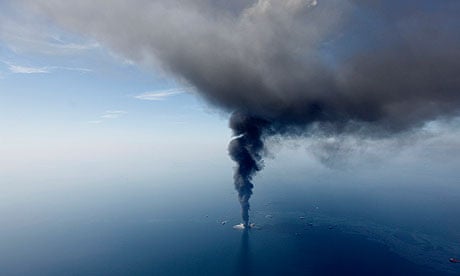Insurers Amlin and Hiscox have been hit by catastrophe claims and losses related to the oil spill in the Gulf of Mexico.
"We had the UK winter freeze and windstorm Xynthia in Europe, we had volcanic ash and we had Deepwater Horizon – it was an astonishing first half," said Robert Hiscox, chairman of the eponymous insurer. "Mother Nature has shown how capricious she can be."
It was the worst ever first half for natural disasters, according to reinsurer Munich Re. Following an uneventful 2009, the industry was hit hard by the Chilean earthquake in February – the largest insured natural disaster outside the US for many years – and windstorm Xynthia, which tore through France in early March.
Amlin had net claims of $167.6m (£108m) from the Chilean earthquake, out of total industry losses of $8bn, plus $2m from Xynthia, compared with industry losses of $3.4bn. It was more heavily exposed to hailstorms in Australia, which resulted in claims of $18m, out of an industry total of $920m.
Bermuda-based Hiscox estimates its bill for the Chilean earthquake and Xynthia will reach £100m. Its retail arm, which sells home insurance direct to consumers, was hit by the winter freeze in the UK at the start of the year and has raised premiums by 4%. Moreover both insurers had exposure to the BP oil spill which cost Amlin $15m and Hiscox about £10m.
Despite a 56% increase in gross written premium, Amlin's profit before tax dropped £70m from a year ago to £107.6m in the first six months of the year. Hiscox reported a £44m fall in profits to £97.2m, with its gross written premiums little changed at £904.3m.
The oil spill reversed the fall in energy insurance rates lifting them by up to 20%, in recognition of the increased risks. The worst spill in American history has affected insurance rates for deepwater drilling around the world and has also had a knock-on effect on marine liability rates because of potential pollution, said Amlin's chief executive Charles Philipps.
The disaster has also fuelled demand for insurance. BP was self-insured. "A lot more people want to buy. Regulators are demanding that if companies are drilling in the Gulf they get X amount of insurance," said Hiscox. He was confident about the future, even though experts are expecting a worse-than-usual hurricane season this year. Unlike banks faced with black holes in their finances, insurers tend to bounce back quickly after a big disaster because they can bump up their prices. "If it's really big and hairy, a feast follows the famine," he said. He noted that the worst year for the insurance industry, 2005, when four hurricanes hit America, was followed by several years of staggering profits.
Amlin cheered investors by raising its interim dividend by 10.8% to 7.2p a share while Hiscox increased its dividend by 11% to 5p.
